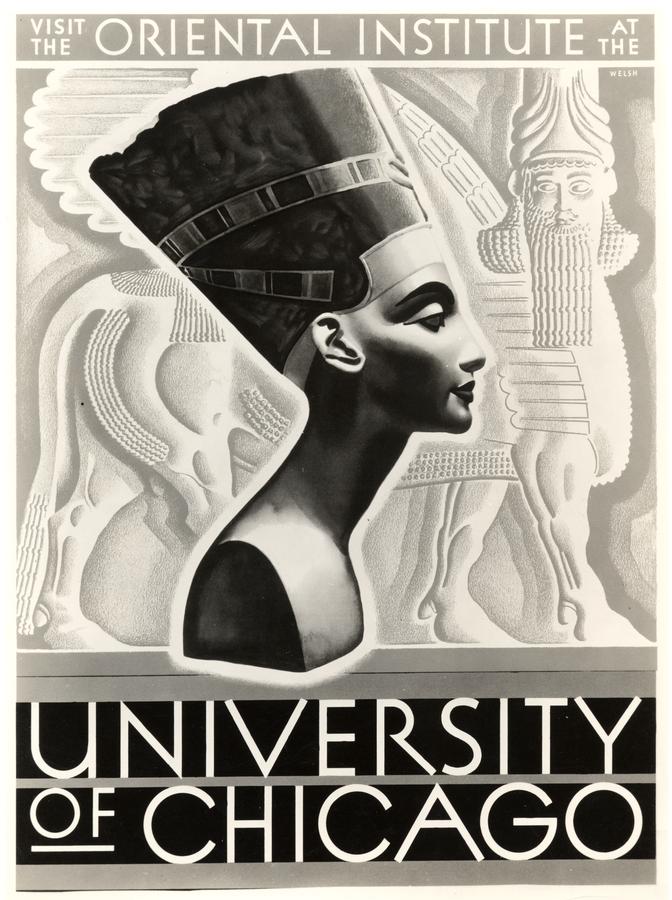New York Times
By JOHN NOBLE WILFORD
Published: June 07, 2011
Ninety years in the making, the 21-volume dictionary of the language of ancient Mesopotamia and its Babylonian and Assyrian dialects, unspoken for 2,000 years but preserved on clay tablets and in stone inscriptions deciphered over the last two centuries, has finally been completed by scholars at the University of Chicago.
This was the language that Sargon the Great, king of Akkad in the 24th century B.C., spoke to command what is reputed to be the world's first empire, and that Hammurabi used around 1700 B.C. to proclaim the first known code of laws. It was the vocabulary of the Epic of Gilgamesh, the first masterpiece of world literature. Nebuchadnezzar II presumably called on these words to soothe his wife, homesick for her native land, with the promise of cultivating the wondrous Hanging Gardens of Babylon.
On all levels, this was the language of enterprise, the irrigation of lands and shipments of cultivated grain, and of fate foretold. Medical texts in Babylonia gave explicit instructions as to how to read a sheep's liver to divine the future.
At a conference on Monday, historians, archaeologists and specialists in ancient Semitic languages assessed the significance of the comprehensive dictionary, which Gil Stein, director of the university's Oriental Institute, said "is an indispensable research tool for any scholar anywhere who seeks to explore the written record of the Mesopotamian civilization."
One scholar who has relied on the project's research at various stages since the 1960s, Jerrold Cooper, professor emeritus in Semitic languages at Johns Hopkins University, said the dictionary's importance "can't possibly be overestimated." It opens up for study "the richest span of cuneiform writing," he said, referring to the script invented in the fourth millennium B.C. by the earlier Sumerians in Mesopotamia...
University of Chicago institute completes dictionary of ancient language after 9 decades
21-volume sets will be sold to libraries for $1,400 each
Some might wonder if it is a bit late in the game, but scholars at the University of Chicago's Oriental Institute have finally completed the Assyrian Dictionary, listing 28,000 words of a language that hasn't been used for more than 2,000 years.
Published in 21 volumes, the dictionary project was started in 1921. In all, 88 scholars worked 90 years to compile it. At $1,400 a set, it will be sold mostly to universities, enabling students and scholars to study and read a reproduction of millions of original documents — sun-baked clay cuneiform tablets — left behind by the world's first civilizations.
Wedge-shaped indentations pressed into the clay formed the first known written language. The tablets hold the written history of life over 2,500 years in early nation-states in what is modern-day Iraq. The writers recorded transactions, laws, marriages, divorces, legal disputes, literature, religious texts and personal correspondence. The vast correspondence even includes a bratty letter from a spoiled rich kid...
Scholars complete dictionary of lost language after 90 years
A dictionary of a long dead language has been completed after a team of scholars worked on it for 90 years.
By Nick Allen, Los Angeles
10:00AM BST 06 Jun 2011
The project to create the Assyrian dictionary, based on words recorded on clay or stone tablets unearthed from ruins in Iraq, Iran, Syria and Turkey, began at the University of Chicago in 1921.
The language had not been spoken for more than 2,000 years.
Over several generations scholars from Vienna, Paris, Copenhagen, Jerusalem, Berlin, Helsinki, Baghdad and London travelled to Chicago to work on the endeavour.
The Chicago Assyrian Dictionary is now officially complete. It contains 21 volumes of Akkadian, a Semitic language, with several dialects, including Assyrian, that was in use for 2,500 years Gil Stein, director of the university's Oriental Institute, said: "The Assyrian Dictionary gives us the key into the world's first urban civilisation.
"Virtually everything that we take for granted has its origins in Mesopotamia, whether it's the origins of cities, of state societies, the invention of the wheel, the way we measure time, and most important the invention of writing...
Huge Ancient Language Dictionary Finished After 90 Years
Released: 6/5/2011 2:30 PM EDT
Source: University of Chicago
21-volume work details the language and culture of ancient civilizations in Mesopotamia
Newswise — An ambitious project to identify, explain and provide citations for the words written in cuneiform on clay tablets and carved in stone by Babylonians, Assyrians and others in Mesopotamia between 2500 B.C. and A.D. 100 has been completed after 90 years of labor, the University of Chicago announced June 5.
To mark the completion of the 21-volume Chicago Assyrian Dictionary, the Oriental Institute at the University, where the project was housed, will hold a conference Monday, June 6, during which scholars from around the world will discuss the significance of the achievement...
And see also: On the CAD
See the chronicle of news about the Oriental Institute.





 Stumble It!
Stumble It!


No comments:
Post a Comment